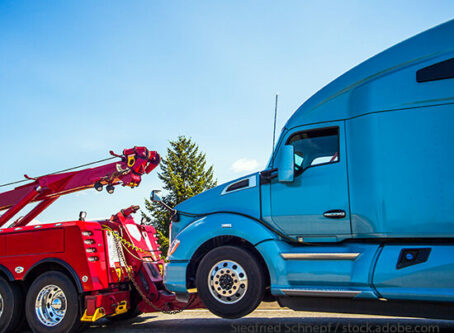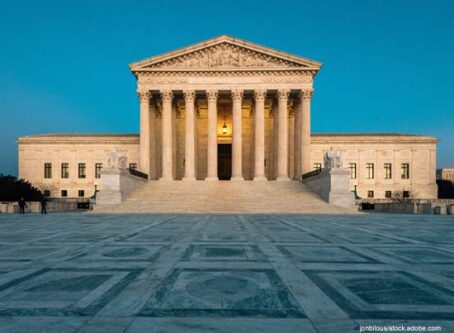Prime ordered to notify drivers $28M settlement is legit
A U.S. District Court judge has ordered New Prime to send letters to 30,000 truck drivers to let them know that a $28 million settlement involving the Springfield, Mo.-based trucking company is legitimate.
Earlier this summer, Prime and truck drivers Dominic Oliveira and Rocky Haworth reached a $28 million settlement regarding claims that Prime improperly paid drivers in violation of the Fair Labor Standards Act, Missouri minimum wage law, and related laws.
On Oct. 5, about 40,000 former and current Prime drivers and trainees were notified – an estimated 30,000 of them by email – about the website PrimeTruckingSettlement.com and their potential eligibility to receive funds from the court-approved settlement. According to court documents, on the same day a supervisor at Prime sent a message through the company’s app and Qualcomm system telling its drivers not to click on the link of the email because it was a “phishing” scam. The same supervisor sent a second Qualcomm message about an hour later retracting the previous message.
An attorney for the truck drivers filed an amended emergency motion on Oct. 7, saying that the damage had already been done and that the supervisor’s follow-up message wasn’t enough to ensure the original phishing scam message wouldn’t deter potential class members from filing a claim.
A judge for the U.S. District Court of Massachusetts agreed, ordering Prime – at the company’s expense – to send cover letters on company letterhead to all of the truck drivers who were originally notified about the settlement through email.
In addition, Prime was required to send another Qualcomm message to all of its drivers who received the original false message. The company also was ordered to send messages to the administrators of the Prime Facebook groups, which posted inaccurate information about the settlement.
“I don’t know what the supervisor was thinking,” Judge Patti B. Saris said during the Oct. 9 hearing. “You’d think that he would have checked with someone.” She added that she didn’t believe the message was sent out of malicious intent but that the mistake had her “deeply worried.”
Judge Saris said that with phishing scams being so prevalent she could envision many potential class members being hesitant to open any emails about the settlement after seeing the original message.
“If I get one of those kind of messages, then I don’t go near any message that looks anything like it,” Judge Saris said.
The mandated letter is intended to clear up any potential confusion regarding the legitimacy of the settlement.
“There have been inaccurate messages sent out on the Prime app and the Qualcomm system about the email that many of you received to participate in a class action settlement,” the letter states. “The email about the settlement is not a scam or a phishing attempt. It is a legitimate, court-approved notice informing you of your right to recover money and other relief as part of a lawsuit settlement.
“Please visit the website www.PrimeTruckingSettlement.com for more information and to file a claim. All information that individuals share throughout the website will be protected and will be used only in connection with issuing your payments from the settlement.”
Settlement information
The $28 million settlement was the result of a case that lasted more than five years and reached all the way to the U.S. Supreme Court. The lawsuit originally filed by Oliveira in 2015 alleged that Prime violated the Fair Labor Standards Act. Prime attempted to force arbitration until a 2019 U.S. Supreme Court decision sided with Oliveira. In July, Oliveira and Haworth reached a $28 million settlement agreement with Prime.
Funds will be distributed to the named plaintiffs as well as about 40,000 potential class members who leased their trucks through Prime at any time from Oct. 2, 2012, through May 8, 2020, or those who attended training in Missouri to become a Prime truck driver at any time since March 4, 2010, through May 8, 2020.
Those who wish to receive their maximum share of the settlement must fill out and return or submit online the “Claim/Consent to Join Form” no later than Dec. 7.
More information about the settlement and potential payouts can be found here.
Prime’s statement
According to a statement by Prime to the Springfield News-Leader newspaper, the original message was an unfortunate mistake.
“A Prime employee, acting in good faith, mistakenly suspected the email regarding the settlement was a phishing scam, and out of concern for the protection of our drivers – which is always paramount to Prime – sent a warning to the drivers,” the Prime spokesperson said. “Prime has been the subject of daily phishing attacks, and this particular email caused the employee legitimate concern. When Prime discovered the error, the same employee sent a correction to the entire fleet within the hour advising that the email regarding the settlement was legitimate.” LL









